Containing Multitudes

By Courtney Sina Meredith
In a rare interview on a Skype call from New York, award-winning writer and filmmaker Toa Fraser chats with Courtney Sina Meredith about the 20 year odyssey that’s taken him from a small car park in Auckland to the world stage. Fraser, the creative alchemist behind films No. 2, Dean Spanley, The Dead Lands, Giselle, Six Days, The Free Man, River Queen, a myriad of television projects like ‘Penny Dreadful’ ‘Into the Badlands’, the latest Marvel series of ‘Daredevil’ the ‘IronFist’ and a new Australian series ‘Tidelands’. Not to mention plays and he's just made history in 2017 by being the first director to have two films in the New Zealand International Film Festival.
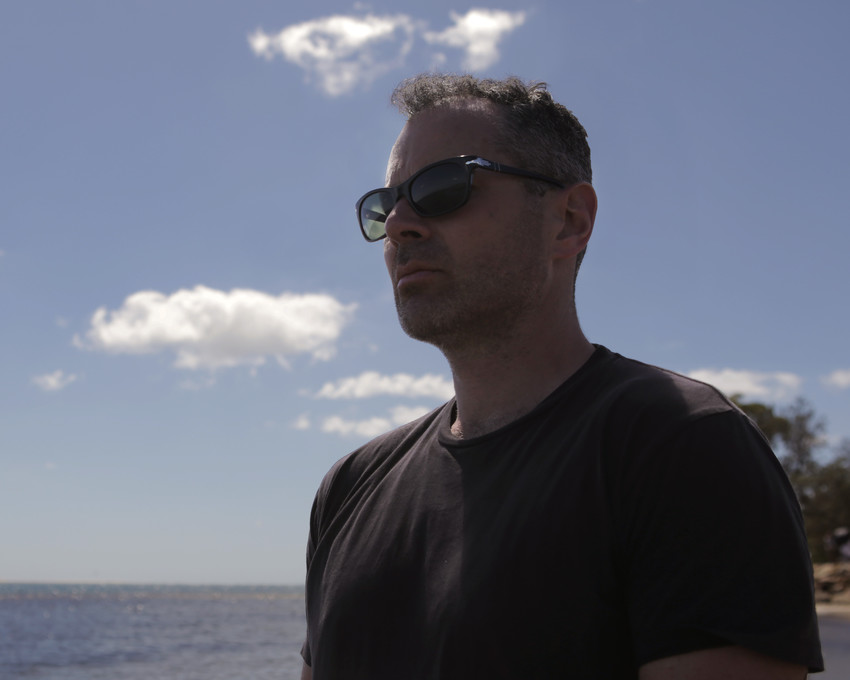
Toa Fraser: I do feel it is a representation of me. I remember quoting Walt Whitman a lot at the start of my career when it felt like people who were interviewing me didn’t really understand me and I would say, “I am large, I contain multitudes.” At that time I was 23, straight out of university with just a couple of plays - Bare and No. 2. It was important to represent myself as a Pacific Islander - I really wore that on my sleeve with both works. There was a character that was the heart of Bare and that was ‘Shakespeare Guy’, an old Fijian man in the play. So these two plays had this Pacific Island-ness which was really important to me but at the same time I felt kind of pigeon-holed by other people. I guess people couldn’t put me in a box and it was really important for me to be like - that’s cool because I don’t belong in a box. This has been a sort of feature of my career, being varied, which has only just come full circle. Now people will call me versatile and things like that, which I take as a real compliment.
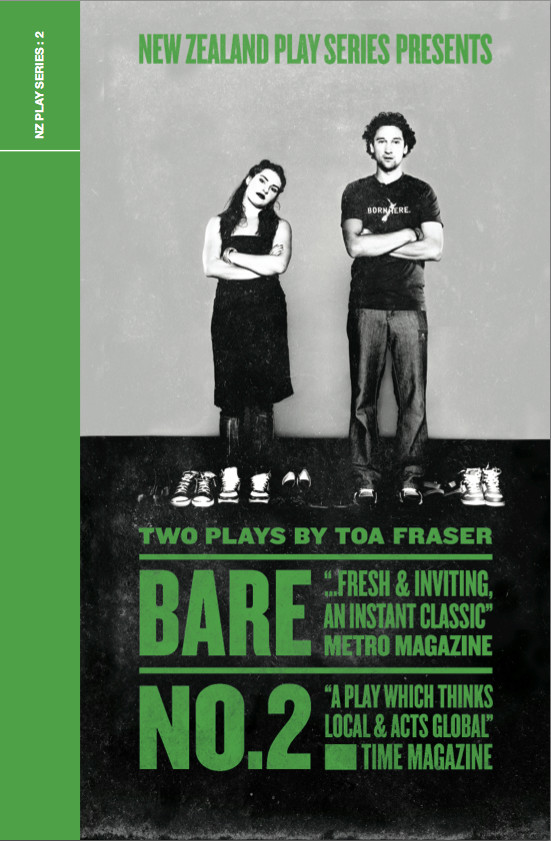
It feels like now, the various things I’ve done over the years have added up to create some sort of whole. I also remember in the beginning of my career talking about that old parable that the truth is like six blind men trying to touch an elephant. I really felt like that at the start, I didn’t think every project I did or that every story I told would be the definitive version of me - but when you add them all up maybe something rings true in the catalogue.
People wanted to label me Fijian or half-caste and I was willing to accept those labels in the beginning because Fijian-ness is important to me, as is my mixed heritage, but I feel like I’ve personally relaxed with that stuff and the world has relaxed too over the last 20 years. That’s partly due to people like yourself, the plethora of people that are talking with a unique voice, showing that there is no essential Pacific experience and that we all have something to say.
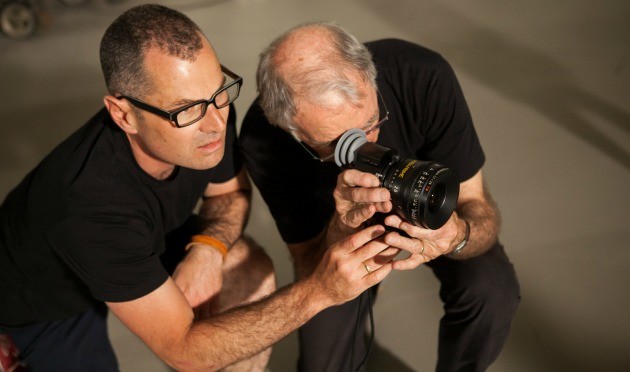
Toa Fraser: Well with that, I remember reading in the Auckland university library a Robert Altman interview - he had an amazingly diverse career, and in this interview he said that he didn’t really choose his projects he just did what he was able to do. At the start of my career I didn’t have anything to lose, all I had was a blank page. I don’t really feel like I’ve chosen my projects, I go where the wind is taking me.
I learned a great lesson. There was a moment a few years ago - you know I work really hard and I try to meet the right people and to put myself out there - but a few years ago I decided to go on holiday with my family. This was the only time ever where we decided not to be available, to just relax, and we went to France which was great. We went there party because I’d seen Werner Herzog’s Cave of Forgotten Dreams and I wanted to go to that numinous part of the world to see the cave drawings where people have been telling visual stories on the walls for 36,000 years. At that very moment when I wasn’t looking for anything, John Logan - the creator of Penny Dreadful - one of my absolute heroes - got in touch. His very first film was Any Given Sunday, he’s made many incredible films - Skyfall Spectre, a lot, anyway he called and asked me to work on Penny Dreadful. I don’t feel like I’m being falsely modest but from my point of view those first two plays didn’t have any sort of craft they just came out. I had great collaborators and inspiring influences. There were moments along the way where I had moments of great inspiration but as soon as the plays were done - I thought to myself, well how did that happen?
The lesson is that often when you stop looking, what you’re looking for comes to you. There’s that and the fact that I feel incredible lucky. I was lucky from the start. Lucky to have written plays that found audiences so easily.
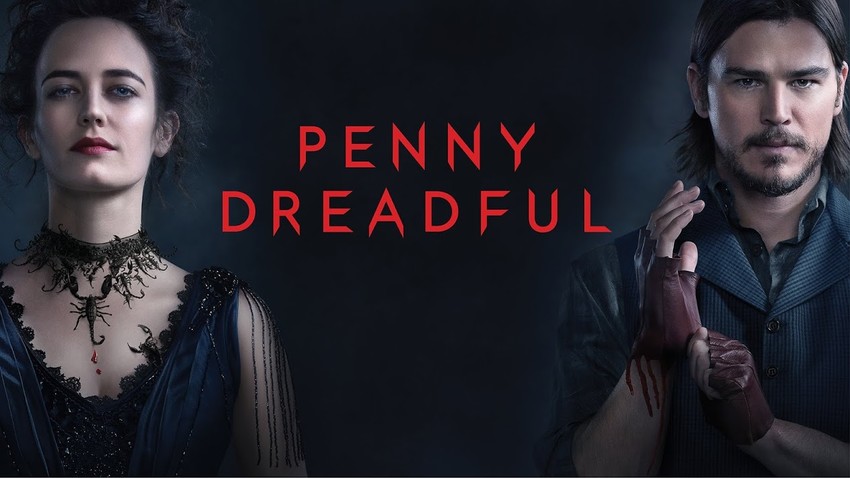
Courtney SM: What are you most proud of?
Toa Fraser: I’m really proud of the fact that I’ve stayed in it for 20 years. I went to a couple of high schools last year in South Auckland and the kids there were 17, studying No. 2 and they weren’t even alive when I wrote the play. For me that feels you know, scary and weird, but I’ve just done one thing after another and they don’t feel like decades ago - but those are the moments when I feel the most proud. When I see kids who weren’t born when I was writing and those things are still speaking to them.
When I wrote Bare there was no Facebook and hardly any cellphones - to think that these days those two plays are still relevant is special. I am proud of the movies No. 2 and Deadlands especially, I’m proud that here in the states there’s tons of my stuff on Netflix at the moment: Deadlands, Six Days, The Free Man, Penny Dreadful, it’s crazy! That feels good but what I’m proud of really is that it all started in a very humble car park - a small theatre in Auckland, the Silo Theatre which is now The Basement. It was really hipster back then, genuinely grungy, my cousin Gareth used to come down in his Auckland Boys Uniform and play on the playstation in the corner there. I have so many fond memories.
When I do make it home to Auckland I’m amazed by all the new voices. It is pretty exciting. The other thing I notice when I come back with a sense of sadness is the way that it feels like the inner suburbs of Auckland are becoming less obviously brown. It was something I used to get annoyed with at the start like when I wrote my plays - like No. 2 - people would class it as a South Auckland play. I always railed against that because this idea, this mythological notion - this false idea that we’re out there, away somewhere, is something that I found really annoying. Right in the middle of Auckland is where we have always been.
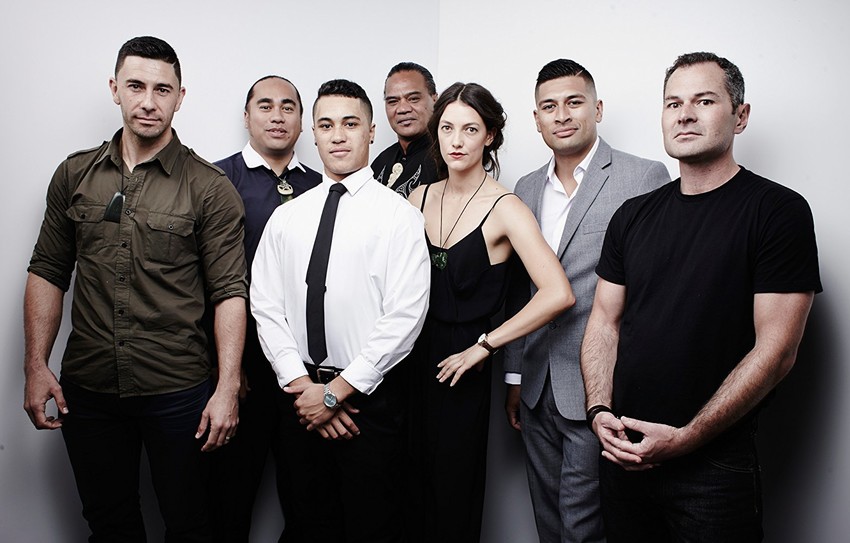
Courtney SM: How does your Fijian-ness come into play with your work?
Toa Fraser: The first thing to say about that is that when I hear the word Fijian it always makes me feel a little, you know, these identity questions are very complex - as you very well know. I have so many memories that flood into my mind when I get asked a question like that. One of the memories is running into Michael Jones who is one of my biggest heroes ever, you know I used to do my Michael Jones impressions whenever I used to play rugby! He asked me one time a long time ago - we were doing a charity thing together and he asked if I was Samoan, and I said well yeah. My Pacific heritage really comes from Samoa, my grandparents were born in Fiji but their backgrounds are Samoan. He just looked at me and said - you should talk about that.
Having lived and worked in Fiji at USP (The University of the South Pacific) I’m aware that even the word ‘Fijian’ is very loaded. To think of myself as Fijian - in the legal, land owning sense - that word has a particular meaning in Fiji that it doesn’t have in other places. I’m always a little shy of that word these days but of course I’m very proud of Fiji and Samoa and the Pacific in general.

Toa Fraser: I always knew that I wanted to make movies, I loved Star Wars and Raiders of the lost Ark and all those big movies in the 70s and 80s. I had a great group of friends in GI (Glen Innes) when I was a kid and we used to sit around in the garage making up stories. ‘Niko Thunderbolt’ was always my dream project: a Samoan cop in New Zealand in the future where there’s a battle over oil and New Zealand is the last place on earth with any oil. We used to dream up this stuff and do our Arnold Schwarzenegger impressions and all that kind of thing. When you’re a teenager it’s common for people to give you career advice so I listened to that but when I got to university I felt really lost in my first year. I expected it to be like school and it wasn’t. It was really big and very different and I felt lost but I had great advice towards the end of that year and then I re-engaged with my imagination and remembered what it was that I felt called to do.

I’ll never forget being in the Continental Noodle House on Durham Lane the day after Bare opened and I was getting my $4.50 BBQ pork noodles and I remember hearing some other people, strangers on an adjacent table, saying that they’d seen this amazing play Bare last night and that they were taking their friends back to see it. I remember thinking, well that’s a big change. So I gave in my notice at the movies on Broadway where I was working at the time. I left, and Shirley the accountant there gave me my holiday pay even though I hadn’t given two weeks notice! I’ll never forget her, it meant a lot to me at the time.
It was a wonderful experience having a couple of years working with Ian Hughes and Madeline Sami touring Bare and being able to travel the world - and then I wrote No. 2 for Madeline the next year. I was writing a play, a kind of normal play after Bare - you know with 7 people on the stage and a full set and everything and I remember finding that really hard. I was at KFC on Ponsonby Road with Madeline one day and I said to her - you know what - I’m just going to write a one woman show for you because this other thing’s too hard. She blew everyone away with that performance. We went everywhere - Jamaica, Edinburgh, she took it all around the world.
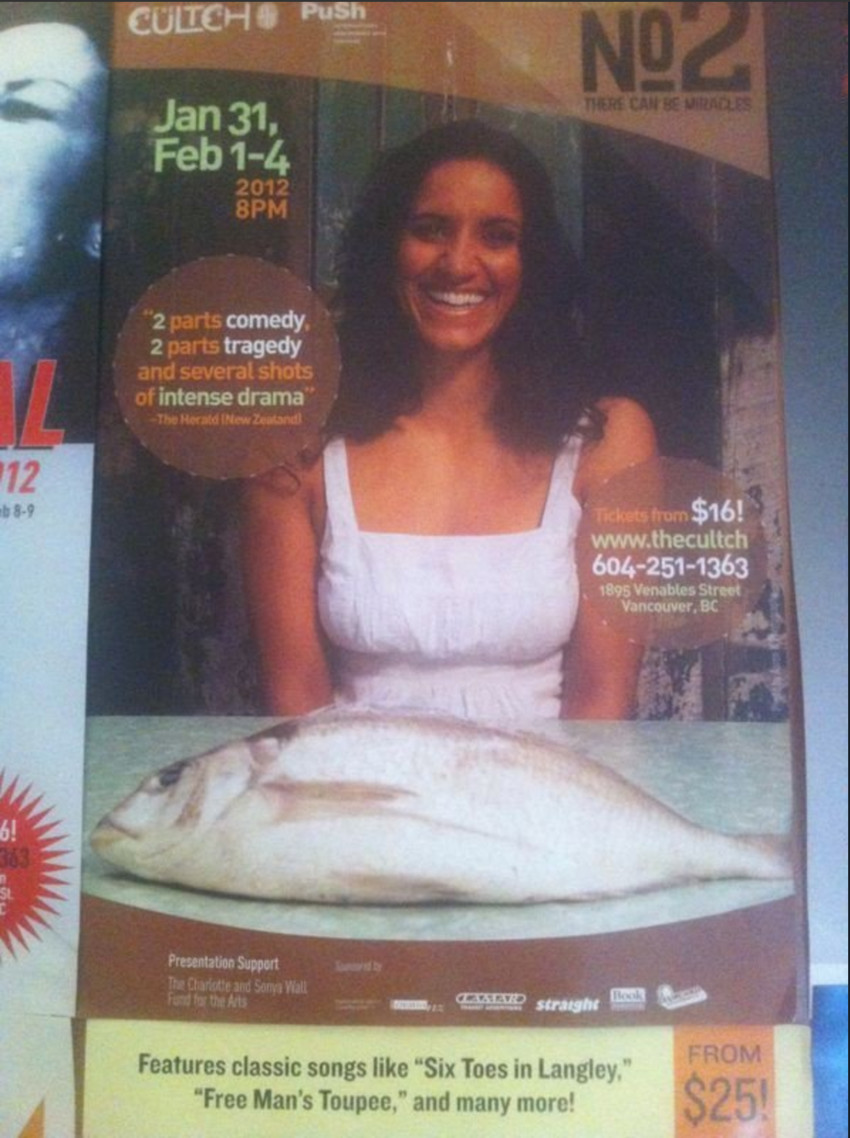
We were having a family barbecue one day in Mt Roskill and I remember telling my cousin I was going to write a play but that I wasn’t going to sell the rights. I’d already sold the rights to Bare the year before and regretted it - because I wanted to make movies. I decided with this one that I was going to keep it and not sell the rights. My cousin was kind of like - ok yeah, whatever you say cuz. You know - Tupac had just died so that was a lot more important.
No. 2 the play was successful but it took a long time to convince people to believe in me to direct the movie based on that. It took a long time to write the screenplay as well, something like five years and it took a long time figuring out how to cast that film. We had a Fijian matriarch at the heart of that story and we looked in the Pacific and we looked in New Zealand but we came to the realisation that to make the movie in the way that we wanted to make it - and realising that the character was quite theatrical and operatic - we were going to need an actor capable of bringing that to the role. I’d been really inspired by Do the Right Thing while writing No. 2 and there are a lot of obvious commonalities - both stories take place on one long hot summer day. I loved Ruby Dee so much in that film so I went for gold with asking her to be in No. 2. I didn’t hear back from her immediately, but one day there was an answer phone message with a distant voice and it was Ms Dee saying she loved the script and she wanted to come down to New Zealand to be part of it. That day was incredible. When you’re developing something like that you never want to get too excited along the way because you don’t want to be disappointed, but the day she arrived - I ripped out a big happy voucher.


I went to Harlem yesterday to see Black Panther, I wanted to see it in Harlem where Ruby Dee grew up. The theatre we went to was literally just a few doors down from the Apollo where so many amazing things have happened over the years. Sitting in a predominantly black audience in Harlem with 10-year-old kids and their huge buckets of popcorn next to me, and these kids, they knew half the dialogue - they were saying lines before the actors did! To be a small part of that, what is happening on a huge level, what we’re seeing with Taika’s career too and these different voices - our voices, we’re seeing our voices at The Basement and on a massive international scale and everything in between - well that’s very humbling and exciting to be part of.
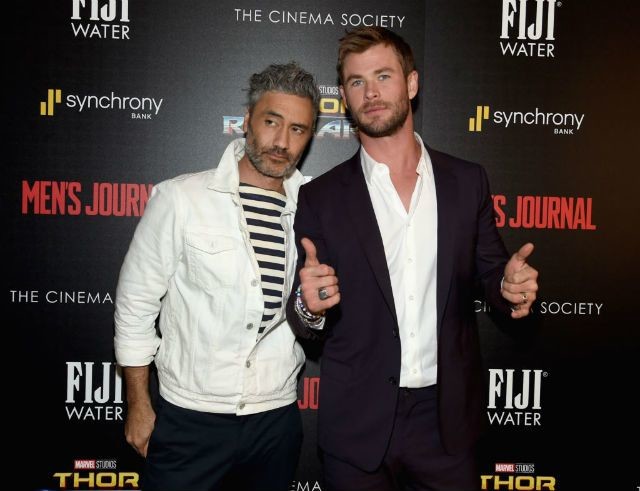
Courtney SM: How do you balance work and family?
Toa Fraser: It’s tricky. It feels important to me to give our kids an international experience but at the same time to not have them on the road forever. We’re really committed to New Zealand and having the kids go to school there. I haven’t seen them for a couple of months so I’m looking forward to seeing them really soon. They will travel with me a bit more this year and balancing that is tricky. Having a strong family anchor and backbone is everything. The thing is, this is what our ancestors did too, we’ve always been looking over the horizon.

Courtney SM: What advice do you have for young Pasifika directors and filmmakers trying to break into the scene?
Toa Fraser: I could go on and on, but the singular most effective short thing that I ever learned early was: follow your bliss - from Jospeh Campbell. It sounds like an Instagram quote but more than anything that had a profound impact on my life when I realised that I wasn’t happy not following my bliss. Not to say that happiness is the goal. There was a period in my early 20s when I felt very lost and it was to do with not doing that. Listening to that inner voice is so important. I feel like we all know what we are here to do and one of the responsibilities is to listen to that voice and pursue it. That’s broadly speaking.
In practical terms - my most obvious advice is to just start doing it. In the beginning I didn’t have a video camera or any access to making movies when I was a student but I did have a pen and paper, and some people to share ideas with and that’s how I managed to get stuff up in front of audiences. I would say - I am a writer. I was quite arrogant like that, just saying it and not feeling any qualms when I hadn’t even written anything really, but I managed to do that somehow.

It’s only later in life when you’re going to your brother in law’s drinks at his law firm that you realise the career path you’ve chosen is something that mainstream culture is very reluctant to acknowledge. I remember people asking me, can you make a living off that? It was very dispiriting. I started my career with a huge sense of excitement and I just got things happening and then I went into a different place. Those plays at the start came out really easily so I didn’t feel responsible for them or as though I had done them, they just kind of landed and at the same time there were all these people asking me about money, was I making any, and of course I was making money through royalties, but I felt like an outsider for a while. Even though I was successful. I felt a bit lost again with those plays at the start and I was uncomfortable with calling myself an artist, which was something that was just so weird because I did have kudos but I didn’t feel like that path was very valued. I struggled with that but I eventually came to terms with it in the end and I just said fuck it - this is what I love to do and I’m going to just keep doing it.

